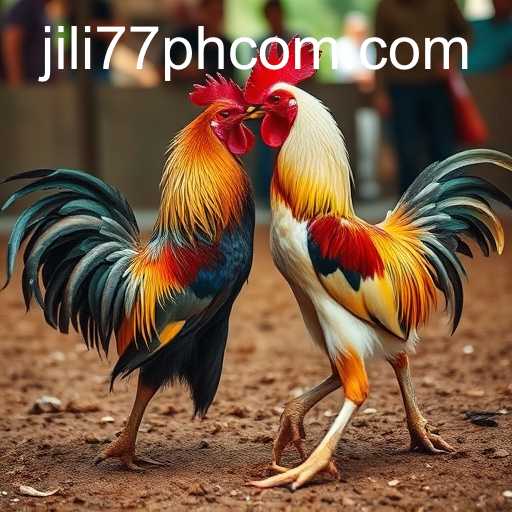An in-depth analysis of cockfighting, its cultural and social significance, legal considerations, and the modern dynamics of platforms like Jili77 ph.
Cockfighting: A Deep Dive into a Controversial Tradition
Cockfighting, an activity deeply rooted in various cultures around the world, continues to incite heated debates due to its contentious nature. Despite the controversies, the tradition of pitting roosters against each other has persisted in many regions, including Southeast Asia. In this article, we explore the origins, cultural significance, and ongoing debates surrounding cockfighting, with specific attention to the modern-day context of Jili77 ph.
Origin and History of Cockfighting
Jili77 loginThe practice of cockfighting dates back thousands of years, with evidence suggesting it started somewhere in Asia over two millennia ago. Historical records point to a widespread practice in ancient China, India, and Persia, later spreading to Greece and Rome. As these civilizations evolved, so did the sport's popularity, weaving itself into the social and cultural fabrics of the communities that embraced it.
Phtaya 50
In the Philippines, cockfighting, or "sabong," is intertwined with both historical and modern aspects of life. It holds entertainment, economic, cultural, and sometimes even political significance, drawing enthusiasts and participants from across the country. However, this tradition is not solely confined to Asia; it has threads that extend into Latin America and the Caribbean, where it similarly plays a meaningful role in society.
Phwin ph
Cultural and Social Significance
Despite the negative connotations it carries in some regions, cockfighting is viewed in many cultures as more than just a mere blood sport. For many, it is a symbol of familial or communal pride, a way to pass traditions down from one generation to the next. The dedication involved in breeding and training the gamecocks speaks to the cultural investment in the practice.
In several countries, including the Philippines, cockfighting is often associated with significant cultural festivals and national celebrations. During such events, the matches are considered central to the festivities, where locals and tourists alike gather to witness the spectacle. Cockfighting arenas, or "cockpits," serve as vibrant social hubs that foster community interaction and economic exchanges, as betting is a central component of the activity.
Debate and Controversy
The practice of cockfighting generates a spectrum of opinions: some argue for its cultural and economic importance, while others call for its abolition due to ethical reasons. Animal rights activists often are at the forefront of the movements opposing cockfighting, emphasizing the cruelty and suffering inflicted on the roosters involved. They argue that the sport violates the principles of animal welfare by subjecting the animals to fear, pain, and often fatal injuries.
Conversely, proponents of cockfighting underscore its longstanding cultural traditions and the economic benefits it brings to communities, especially in rural areas where it can provide a source of income. Advocates claim that, with proper regulation, rights and welfare must be balanced with cultural preservation.PH 35 games
The Legal Landscape
Internationally, the legality of cockfighting varies dramatically. In countries where it is legal, such as the Philippines, the sport is regulated, governed by specific laws and ordinances that aim to oversee the humane treatment of the animals involved. Yet, the enforcement of these regulations is often questioned by critics who argue that there are still widespread violations.
In many Western countries, however, cockfighting is outright illegal, with severe penalties for those caught participating. This polarizing disparity in legal treatments across the globe highlights the challenge of balancing cultural traditions with evolving animal rights perspectives.
Modern Dynamics and Online Presence
With advancements in digital technologies, the landscape of cockfighting has seen significant changes, especially noticeable in communities such as Jili77 ph. The digital era introduces new dimensions to traditional practices, allowing for virtual participation and betting from users worldwide. Online platforms have sprung up, facilitating virtual cockfighting viewing and expanding the reach and influence of the sport.JILI77 app
These online dynamics present both challenges and opportunities. They enable the cultural tradition to reach a global audience and sustain economically in an increasingly digital marketplace. However, they also raise regulatory and ethical questions regarding the enforcement of laws against illegal gaming and the ability to monitor the treatment of animals off-screen.
Some countries have worked towards innovative solutions, seeking to merge modern technological benefits with ethical reforms that address animal welfare concerns. As cockfighting moves into the virtual arena, it must adapt to scrutiny and legal frameworks that vary by region.
Looking Forward
The future of cockfighting and its integration with platforms like Jili77 ph is uncertain and subject to a complex interplay of cultural, legal, ethical, and technological factors. As society continues to grapple with these issues, it remains crucial for stakeholders to engage in dialogues that respect cultural heritage while promoting humane and ethical standards.




